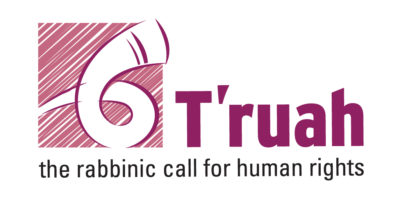The Israeli security cabinet’s decision last week to re-occupy Gaza City, to call up additional reservists, and to extend the war is a death sentence for Palestinians, for the hostages, and for Israeli soldiers.
It has been clear for much of the past two years that this war long ago ceased to be a war of defense or of neutralizing Hamas, and has become a war of revenge, of resettlement, and of saving the coalition and Netanyahu’s political career. We have watched as starvation has taken hold in Gaza, as the medical system has collapsed, and as IDF soldiers have shot at desperate Palestinians seeking food. Just yesterday, the IDF killed five journalists and two other people in a drone strike in Gaza City. This war has already been called the “deadliest conflict for journalists in modern times.”
Meanwhile, horrific videos of emaciated hostages have shown the immediate risk to their lives. The hundreds of thousands of Israelis marching in the streets this past Saturday night know this, as do top past and present security personnel, and even the IDF Chief, who recently has earned scorn from the Netanyahu family for his warnings against continued war.
One of my favorite prophets is Micaiah, who merits only a few, but consequential lines in the Bible.
Following three years of peace, Ahab, king of Israel, proposes to Jehoshaphat, king of Judah, that they together make war on the kingdom of Aram. Jehoshaphat demurs. He first wants to know whether God wills this war. He has reason to distrust Ahab, whom the Bible says “did what was evil in God’s sight, more than all who preceded him.” (I Kings 16:30) In other words, he was the worst king ever.
Four hundred prophets assure them of victory. But Jehoshaphat is still worried, and asks if there might be one more prophet to ask. “There is one more,” Ahab responds, “but I hate him, because he never prophesies anything good for me, but only misfortune.” (I Kings 22:8) Nevertheless, they ask this final prophet, Micaiah, who eventually reveals that God has used the other prophets to lure Ahab into the battle where he will be killed. Furious, Ahab has Micaiah thrown into prison, and heads off to war where, despite disguising himself, he is killed as predicted.
Today, there are too many false prophets egging on the leadership of Israel as they commit to perpetual war. But unlike the biblical king, the ruler of Israel today faces no personal consequences for imposing starvation and death on civilians in Gaza, letting the hostages die in the tunnels, and sending young Israelis to die for his political career and for the dangerous messianic aspirations of his settler base.
Thankfully, there are also Micaiahs, including the hundreds of thousands of Israelis who took to the streets on Saturday night, and who are calling for a week of action and a general strike on Sunday. There is the minyan of rabbis who faced arrest with T’ruah outside of the consulate two weeks ago, as well as T’ruah clergy in Chicago, the Bay Area, and Boston protesting the starvation of Gaza last week and this week.
Within the American Jewish community, we have seen the tide shift in the last few weeks. This is in no small part due to the work of T’ruah and our partners. We have shown that one can care about both Israelis and Palestinians, that one can condemn Hamas’s war crimes while also condemning war crimes committed by Israel, and that one can demand the return of the hostages and an end to the war that is devastating Gaza.
In fact, this is the only way forward.
Thanks for being part of this movement,

Rabbi Jill Jacobs
she/her/hers
CEO, T’ruah

